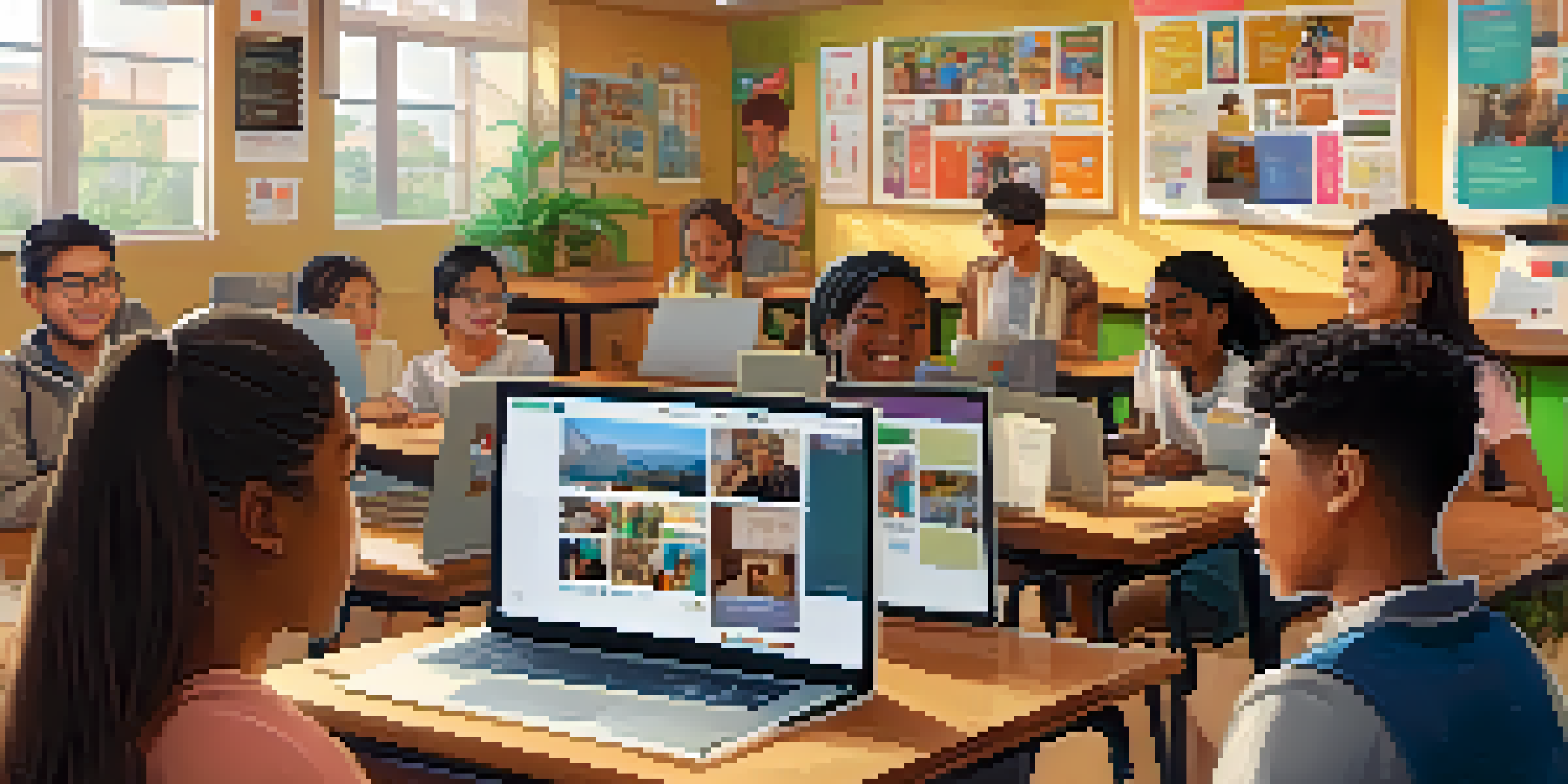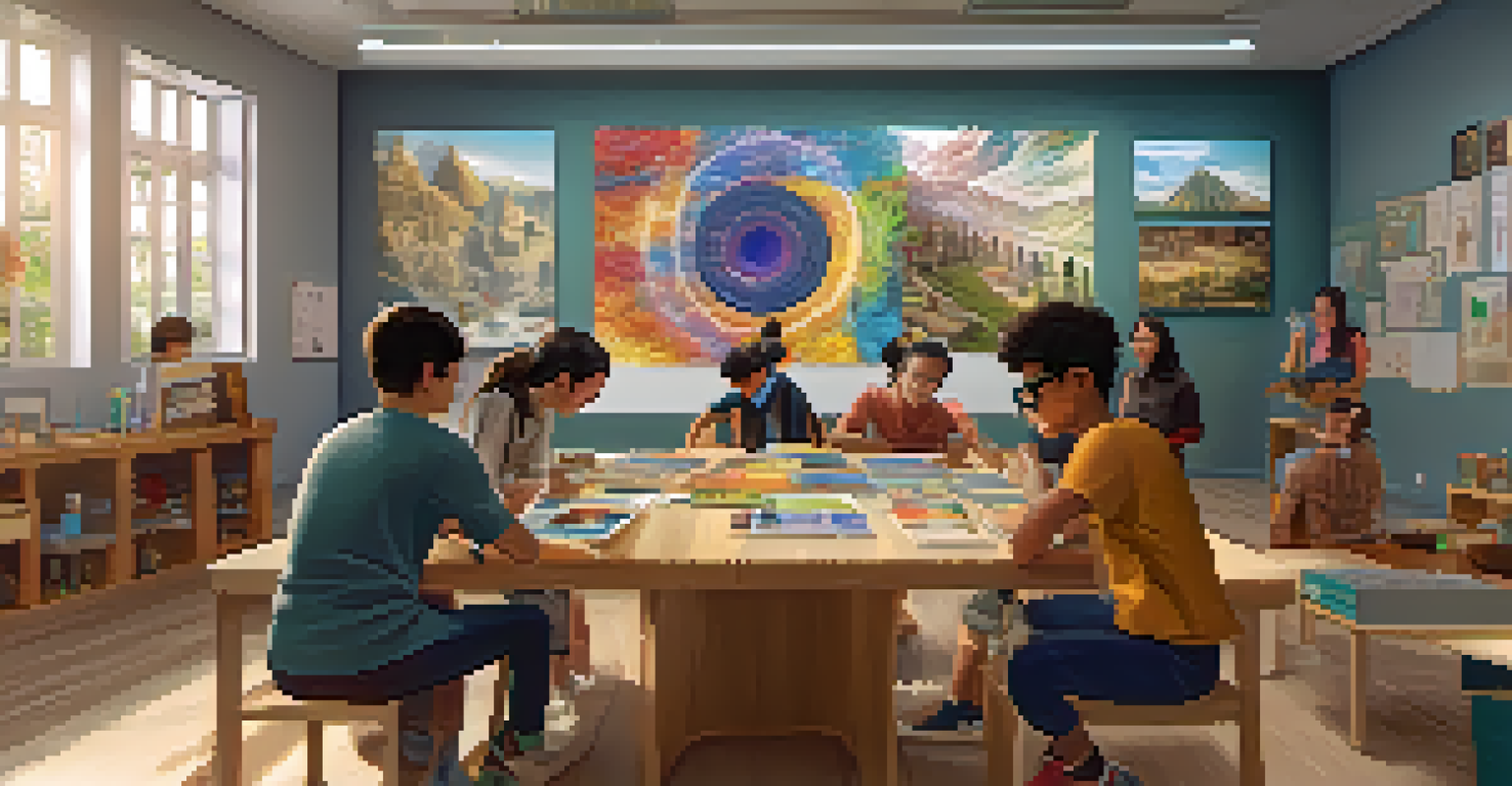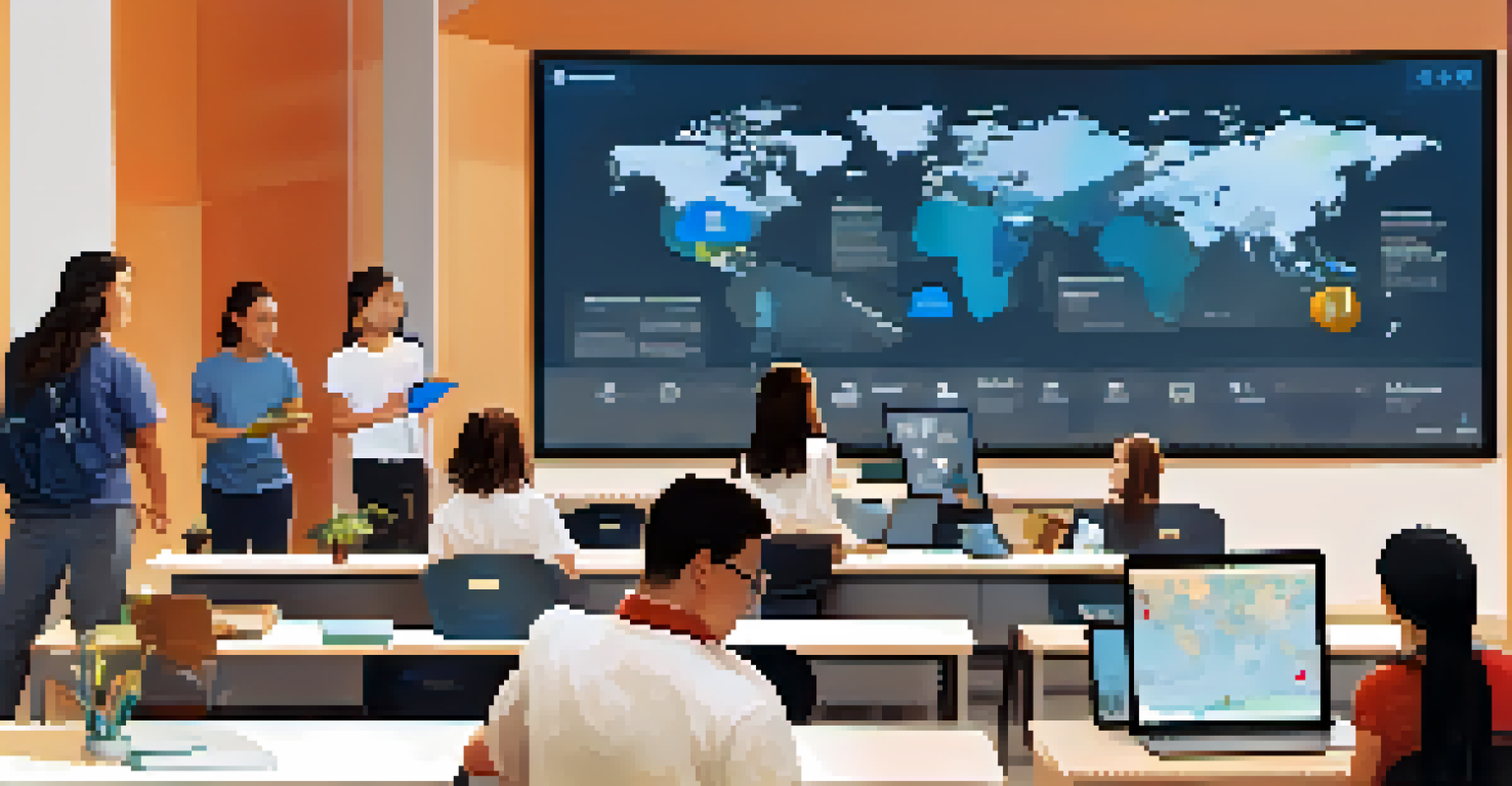Using Technology to Enhance Intercultural Education

Understanding Intercultural Education in a Digital World
Intercultural education focuses on promoting understanding and respect among diverse cultures. In today's interconnected world, technology plays a pivotal role in bridging cultural gaps. By leveraging digital tools, educators can create more inclusive learning environments that celebrate diversity.
Education is the most powerful weapon which you can use to change the world.
For instance, online platforms allow students from different backgrounds to collaborate on projects, share ideas, and learn from each other. This exposure can enhance empathy and appreciation for various perspectives. Moreover, technology can make cultural resources more accessible, enriching students' learning experiences.
Incorporating technology into intercultural education not only makes learning more engaging but also prepares students for a globalized society. By embracing these tools, educators can foster a classroom atmosphere that thrives on curiosity and mutual respect.
Virtual Exchange Programs: A New Era of Learning
Virtual exchange programs utilize technology to connect students across the globe. These programs allow learners to engage in meaningful conversations with peers from different cultures without leaving their classrooms. This real-time interaction can break down stereotypes and foster genuine relationships.

For example, a class in the United States might collaborate with students in India to work on a shared project. Through video calls and online discussions, they can gain firsthand insights into each other’s daily lives and cultural practices. Such experiences can profoundly impact students’ worldviews and interpersonal skills.
Tech Enhances Cultural Learning
Digital tools facilitate intercultural education by promoting collaboration, accessibility, and engagement among students from diverse backgrounds.
As these exchanges become more common, they offer a scalable solution to enhance intercultural education. They provide students with the opportunity to practice language skills and develop a deeper understanding of global issues, all from the comfort of their own schools.
Utilizing Social Media for Cultural Awareness
Social media platforms have transformed how we communicate and share cultural experiences. Educators can harness these tools to promote cultural awareness and encourage dialogue among students from various backgrounds. By following diverse voices online, students can broaden their understanding of global cultures.
The beautiful thing about learning is that no one can take it away from you.
For example, a teacher might create a class project where students follow and interact with cultural influencers on platforms like Instagram or Twitter. This approach allows students to engage with real-world perspectives and share their thoughts in a supportive environment. By sharing personal stories, they can learn to appreciate and respect differing viewpoints.
However, it's essential to guide students in navigating social media responsibly. Educators should emphasize critical thinking and respectful communication, ensuring that students can engage positively and constructively.
Gamification: Making Intercultural Learning Fun
Gamification incorporates game elements into educational contexts, making learning more engaging and interactive. By using gamified tools, educators can create immersive experiences that introduce students to various cultures in an enjoyable way. This approach can spark curiosity and motivate learners to explore further.
For instance, educators can use online games that simulate cultural scenarios, allowing students to make decisions based on different cultural norms. Through gameplay, learners can experience the challenges and rewards of navigating intercultural interactions, making lessons more memorable.
Virtual Exchanges Foster Empathy
Virtual exchange programs connect students globally, allowing them to build genuine relationships and gain insights into different cultures.
By transforming traditional lessons into games, educators are not only enhancing engagement but also facilitating a deeper understanding of intercultural concepts. This method caters to diverse learning styles and encourages collaboration among students.
E-Learning Platforms: Access to Global Resources
E-learning platforms provide access to a wealth of resources that can enhance intercultural education. From online courses to interactive modules, these platforms can offer insights into various cultures and global issues. This accessibility ensures that students can learn at their own pace and explore topics that interest them.
For example, platforms like Coursera and edX have courses created by universities worldwide, covering topics such as cultural anthropology and global studies. Students can take advantage of these resources to gain a deeper understanding of different societies and their histories. This knowledge can help develop a more nuanced perspective on global challenges.
Moreover, e-learning platforms foster a sense of community among learners from different backgrounds. Discussion forums and collaborative projects allow students to share their thoughts and experiences, enriching their educational journey.
Augmented and Virtual Reality: Immersive Cultural Experiences
Augmented Reality (AR) and Virtual Reality (VR) are revolutionizing how we experience different cultures. These technologies can transport students to various locations and immerse them in cultural contexts. By utilizing AR and VR, educators can create engaging, hands-on experiences that deepen students’ understanding and appreciation of diversity.
For instance, a VR tour of a historical site in another country allows students to explore the environment and learn about its significance without leaving the classroom. This immersive experience can evoke emotions and curiosity that traditional methods may not achieve.
Challenges in Tech Integration
While technology offers new opportunities, educators must address issues of access and content reliability to ensure equitable learning experiences.
As AR and VR technologies become more accessible, their potential in intercultural education continues to grow. They can facilitate experiential learning that encourages students to think critically about cultural differences and similarities.
Challenges and Considerations in Technology Integration
While technology offers numerous benefits for enhancing intercultural education, it also presents challenges that educators must navigate. Not all students have equal access to digital tools, which can create disparities in learning opportunities. It's essential for educators to address these gaps to ensure that all students can benefit from technological advancements.
Additionally, educators must be mindful of the content being shared and the platforms being used. Ensuring that students engage with reliable sources and respectful discussions is crucial. Digital literacy becomes an important skill, equipping students to discern credible information in a world filled with diverse viewpoints.

By acknowledging these challenges, educators can create strategies to mitigate them. Collaboration with communities and stakeholders can help provide necessary resources and support, ensuring that technology enhances intercultural education for everyone.
The Future of Intercultural Education: A Tech-Driven Approach
As we look to the future, it's clear that technology will continue to play a significant role in intercultural education. The ongoing development of digital tools and platforms opens up new possibilities for connecting students globally. By embracing these innovations, educators can create dynamic learning environments that prepare students for a diverse world.
Moreover, as technology evolves, so will the methods of teaching and learning. Educators will need to remain adaptable, finding creative ways to incorporate emerging technologies into their curricula. This flexibility will be key to fostering intercultural understanding and respect among future generations.
Ultimately, a tech-driven approach to intercultural education can empower students to become global citizens. By equipping them with the knowledge and skills needed to navigate diverse cultures, we can help shape a more inclusive and understanding world.